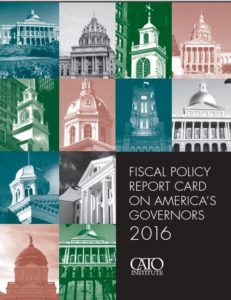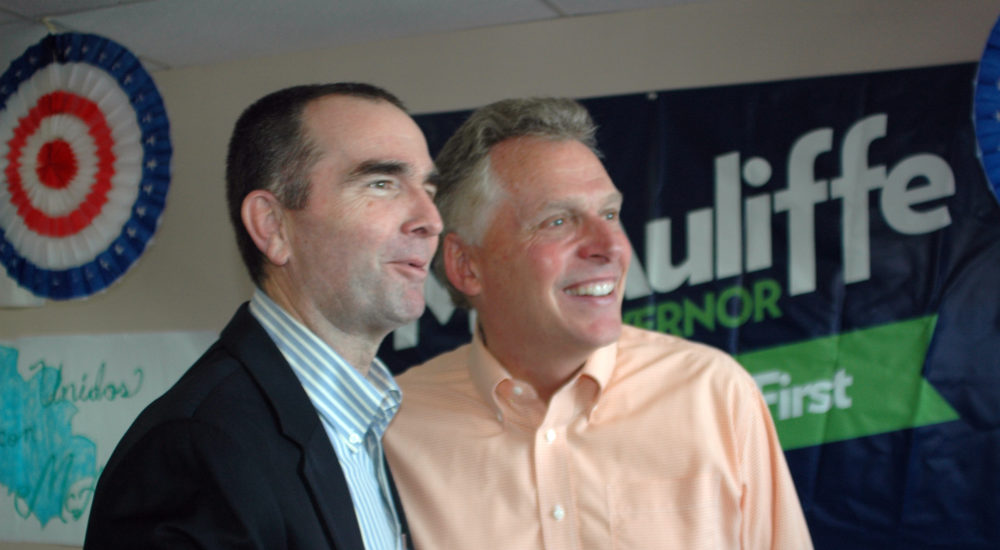Cato Institute Gives Terry McAuliffe a “D” Grade for Fiscal Policy
With the electorate’s and the news media’s attention focused so much on the presidential election campaign, an assessment of the performances of the nation’s governors has slipped under the radar.
 Earlier this month, the Cato Institute released its 13th biennial fiscal report card on governors of the fifty states, compiled by Chris Edwards, Cato’s director of tax policy studies.
Earlier this month, the Cato Institute released its 13th biennial fiscal report card on governors of the fifty states, compiled by Chris Edwards, Cato’s director of tax policy studies.
Noting that governors “play a key role in state fiscal policy,” Edwards explains that the report card “grades governors on their fiscal policies from a limited-government perspective. Governors receiving an A are those who have cut taxes and spending the most, while governors receiving an F raised taxes and spending the most. The grading mechanism is based on seven variables, including two spending variables, one revenue variable, and four tax-rate variables.”
Using “data-driven” results, the report identified only five governors who earned an “A” grade (Paul LePage of Maine, Pat McCrory of North Carolina, Rick Scott of Florida, Doug Ducey of Arizona, and Mike Pence of Indiana) but twice as many who earned an “F” (Robert Bentley of Alabama, Peter Shumlin of Vermont, Jerry Brown of California, David Ige of Hawaii, Dan Malloy of Connecticut, Dennis Daugaard of South Dakota, Brian Sandoval of Nevada, Kate Brown of Oregon, Jay Inslee of Washington, and Tom Wolf of Pennsylvania). Both of those categories, A and F, contain a mix of Democrats and Republicans (with Maine’s LePage an independent).
Virginia’s governor, Democrat Terry McAuliffe, falls somewhere in the middle. Cato grades him a “D,” with a score of 49, just behind Democrat Maggie Hassan of New Hampshire and just ahead of Republican Nikki Haley of South Carolina.
A narrative explanation of Governor McAuliffe’s ranking says:
Terry McAuliffe is a businessman and long-time political operative. On this report, he scored below average on spending and above average on taxes. He has supported a smattering of tax increases and cuts. His best proposal has been to reduce the state’s corporate income tax rate from 6.0 to 5.75 percent. The governor said that he was motivated to cut the corporate tax because of North Carolina’s reforms: “In order to build the new Virginia economy, we have to make the commonwealth competitive in the global market.”97 McAuliffe has also proposed increasing research tax credits and increasing personal exemptions under the income tax. Unfortunately, the tax reductions have not moved through the legislature. The governor has appeared to tie the tax cuts to his proposal for Medicaid expansion, which the Republicans do not support.
By way of comparison, governors of states neighboring Virginia fare both better (Maryland’s Larry Hogan, a Republican, gets a “C”) and worse (West Virginia’s Earl Ray Tomblin, a Democrat, gets a “D” and a score of 45).
Considering the relative excitement of Wednesday’s final debate between Hillary Clinton and Donald Trump, Cato’s fiscal report card is rather dry but worth reading: governors’ mansions are often a stepping-stone to the presidency, and the 2020 election is just four years and two weeks away.


